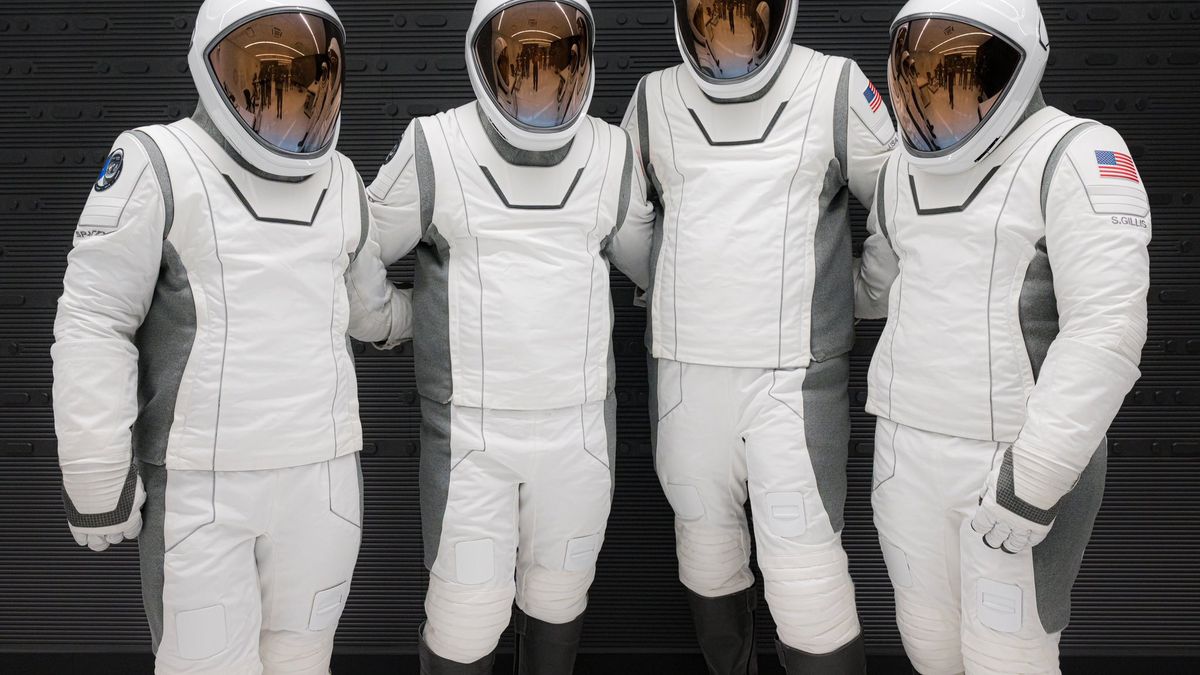SpaceX successfully launched four private astronauts on Tuesday, September 10, 2024, on the Polaris Dawn mission, from the Kennedy Space Center, Florida. The mission made history as a private spacewalk mission that will first conduct a spacewalk. The launch was carried out using a Falcon 9 rocket carrying the Crew Dragon capsule, and managed to orbit about nine and a half minutes after takeoff at 05:23 EST (09:23 GMT).
The Crew Dragon capsule carrying the four crews managed to separate from its supporting trurunk three minutes after reaching orbit, providing a stunning view of the Earth being sunlightd. The mission is planned to last for five days, with an important moment in the form of a spacewalk to be carried out on the third day.
"When you look at the North Star, remember that your courage guides the way for future explorers," Frank Messina, Director of SpaceX launches, radio to the crew. "We believe in your team's skills, courage, and cooperation to carry out this mission. We sent hugs from Earth."
The Polaris Dawn mission is Crew Dragon's fifth mission which is completely private, but also the most risky. This capsule will orbit in an elliptical path, with its closest point reaching 190 km from Earth and its furthest point of up to 1,400 km, making it the furthest distance humans have ever taken since the Apollo program ended in 1972.
The launch of this mission had experienced several delays. Last month, the mission was postponed due to a helium leak in equipment on the SpaceX launch pad. After the leak was repaired, the re-launch was delayed due to a problem of Falcon 9's booster recovery on an unrelated mission. On the day of launch, the mission was delayed by two hours due to unfavorable weather conditions.
The Polaris Dawn mission is planned to carry out the first fully private spacewalk on the third day of the mission, at an altitude of about 700 km from Earth's surface. The entire Crew Dragon cabin will be depreciated, as this capsule is not equipped with an airlock like the International Space Station (ISS). Two astronauts, Jared Isaacman and Sarah Gillis, will exit the capsule using a newly designed SpaceX spacesuit connected to an oxygen rope, while Scott Poteet and Anna Menon will remain in the capsule.
The first spacewalk the United States conducted in 1965, used a method similar to the Polaris Dawn. At that time, Gemini capsules were depreciated, doors opened, and astronauts came out with connected tethers.
The mission is part of Jared Isaacman's personal program called Polaris, after previously financing Inspiration4's mission in 2021. Jared Isaacman, who is 41 years old, is the founder of electronics payments firm Shift4 and a trained pilot. He declined to disclose the costs incurred to finance these missions, but is estimated at hundreds of millions of US dollars.
Apart from Isaacman, the other crew members are Scott Poteet, a 50-year-old former lieutenant US Air Force colonel; as well as two senior SpaceX engineers, Sarah Gillis (30) and Anna Menon (38). On the spacewalk, Isaacman and Gillis will exit the capsule, while Poteet and Menon remain in the cabin.
SEE ALSO:
During the Polaris Dawn mission, the crew will be the subject of scientific experiments to study the effects of cosmic radiation and vacuum on the human body. The experiment is expected to add to the understanding of astronauts' health while in space, complementing decades of research that has been done on the ISS.
Since NASA suspended the Space Shuttle program in 2011, SpaceX has been the backbone of a US manned space flight. Crew Dragon has carried out nine astronaut missions to and from the ISS for NASA, making it the only US manned transport vehicle currently operating.
The Polaris Dawn mission is the first of a series of missions in the Polaris program, which will include future advanced Crew Dragon missions, as well as flights using Starship, a giant rocket being developed by SpaceX for lunar and Mars missions.
To date, SpaceX has carried out four private space missions, including Inspiration4 and three other missions set up by mission broker company Axiom Space based in Houston. Meanwhile, SpaceX's competitor, Boeing, is still experiencing problems in Starliner development, a capsule designed to rival Crew Dragon. Starliner's latest test mission, which started last June, had problems with the propulsion system, so astronauts have remained on the ISS to date.
The Polaris Dawn mission is not only a testing ground for new technologies, but also a major step in commercial spaceflight, paving the way for a broader and inclusive era of exploration.
The English, Chinese, Japanese, Arabic, and French versions are automatically generated by the AI. So there may still be inaccuracies in translating, please always see Indonesian as our main language. (system supported by DigitalSiber.id)


















